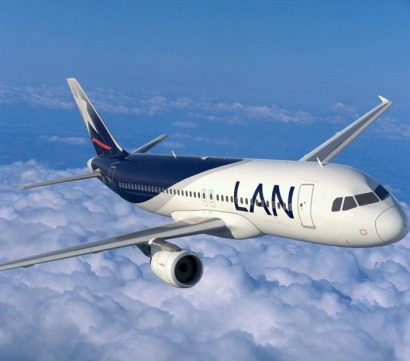
The aircraft used for the flight was an Airbus A320 between the Colombian cities of Bogota and Cali. The fuel came from a plant called camelina, and it meets the strictest technical standards required to fly.
“This milestone represents our second initiative in this area," said Ignacio Cueto, CEO of the Bogota's based airline. "At LAN we aim to develop sustainable bio-fuels for commercial aircraft with a high production potential in South America.
"Without a doubt, this is another key step toward the future of the industry," Cueto continued. "These renewable energy sources play a significant role in global aviation and will increasingly impact decision-making in the industry and in our company.”
The flight took off from Bogota's El Dorado International Airport at 10:00 a.m. local time, carrying 174 passengers on route to the city of Cali, where an event was held to celebrate the milestone.
According to Sylvia Escovar, president of the fuel company Terpel, the flight is "a major commitment that not only contributes to growing the aviation industry in the country and region, but also has a positive impact that invigorates the agricultural industry and provides a significant step for Colombia's export efforts.”
LAN Colombia chose the Bogota-Cali route because Cali is a strategic city for consolidating LAN's operations in the country. At the same time, the Cauca Valley led the way in Colombia's bio-fuel production, making it a symbolic department to start this type of project in the country.
Second generation bio-fuels
By using second generation bio-fuel for the flight, greenhouse gas emissions were reduced significantly since no additional carbon dioxide (CO2) was released into the atmosphere.
This type of fuel can be produced using any renewable biological carbon material. The most common sources are plants, which absorb CO2 and use sunlight to grow. Throughout the world, biofuels are used for transportation, heating, stationary engine power generation and cooking.
The biofuels used for this type of flight are known as second generation, since they can be obtained from plants such as algae, jatropha, and camelina, or from organic waste such as vegetable oils. They may be processed, burned directly, or put through a chemical process to become high quality fuel. In the case of the Bogota-Cali-Bogota flight, the bio-fuel used came from a plant called camelina.
The bio-fuel used in aviation meets the highest technical standards required for flight. This mixture of up to 50 percent jet fuel has the same properties and meets all of the technical specifications of Jet A1, the fuel traditionally used in commercial flights. For this first flight in Colombia, a mixture of 33% biofuel and 67% Jet A1 was used.
The effect of bio-fuel on the environment
By using bio-fuels during the flight, the CO2 released is almost the same as what was captured by vegetable crops during growth; therefore, there is no additional release of CO2 into the atmosphere.
Second generation bio-fuels, such as the one used for this flight, are fuels derived from a raw material that does not compete with food sources or with basic human resources. They do not occupy areas that can be used to cultivate crops, which is essential in the development of this resource and of our planet.
For additional information:

